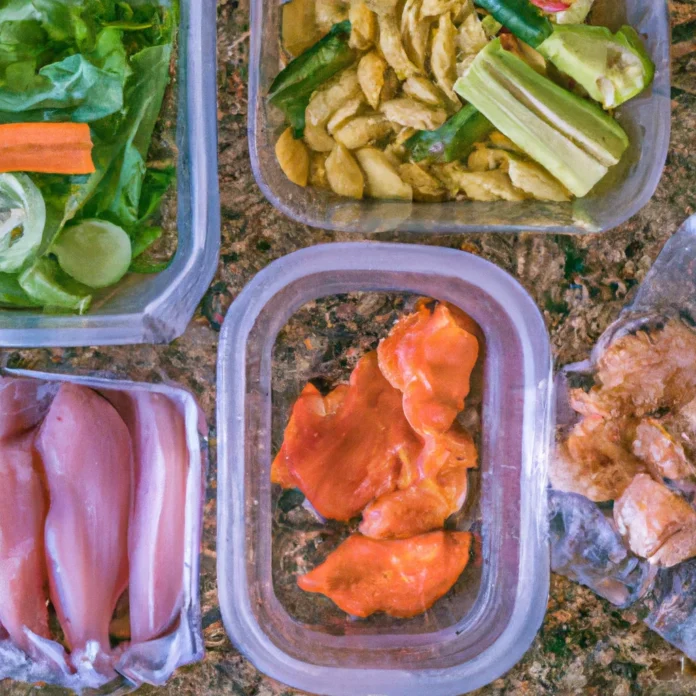How to Avoid Losing Muscle While on a Fat-Loss Diet
In the pursuit of a healthier lifestyle, many individuals embark on a fat-loss diet to shed unwanted weight. However, a common concern during this journey is the potential loss of muscle mass. Preserving muscle while losing fat is not only vital for maintaining overall strength but also for ensuring a well-toned physique. This comprehensive guide will outline effective strategies to help you retain muscle mass while effectively losing fat.
Understanding Muscle Loss During Fat Loss
Before we dive into the strategies to prevent muscle loss, it is essential to understand why it happens. When you reduce caloric intake significantly, your body may begin to utilize muscle tissue for energy, especially if not enough protein is consumed. Additionally, inadequate strength training can lead to muscle atrophy, which is the shrinking of muscle fibers. Thus, it becomes crucial to approach your diet and exercise regimen with a well-rounded strategy.
1. Prioritize Protein Intake
Protein serves as the building block for muscle growth and repair. Therefore, ensuring an adequate intake of high-quality protein is fundamental during a fat-loss diet. Aim for a daily protein intake of 1.6 to 2.2 grams per kilogram of body weight. This ensures that your body has enough amino acids to support muscle maintenance.
Include sources such as:
- Lean meats (chicken, turkey, and lean beef)
- Fish (salmon and tuna)
- Dairy products (Greek yogurt and cottage cheese)
- Plant-based proteins (legumes, quinoa, and soy products)
2. Incorporate Strength Training
Strength training is a potent method for preserving muscle while losing fat. It stimulates muscle fibers to grow and adapt, counteracting the muscle loss that can occur during a caloric deficit. Consistency is key; aim for at least 2 to 3 sessions per week, focusing on compound movements that engage multiple muscle groups.
Consider exercises such as:
- Squats
- Deadlifts
- Bench presses
- Pull-ups
3. Gradual Caloric Deficit
Creating a caloric deficit is essential for fat loss, but doing so too aggressively can lead to muscle loss. Instead of drastically cutting calories, aim for a moderate deficit of around 500 calories per day. This approach allows for sustainable weight loss while minimizing the risk of losing muscle mass.
4. Maintain a Balanced Diet
A balanced diet rich in essential nutrients is critical to support muscle maintenance. Ensure your diet includes a variety of fruits, vegetables, whole grains, and healthy fats. These foods provide the necessary vitamins and minerals that aid in recovery and overall health.
5. Stay Hydrated
Hydration plays a significant role in muscle function and recovery. Dehydration can lead to muscle fatigue and decreased performance. Aim to consume at least 2 to 3 liters of water daily, adjusting for activity levels and climate. Proper hydration can also aid in digestion and nutrient absorption, further supporting muscle maintenance.
6. Manage Stress Levels
Chronic stress can adversely affect muscle retention. High levels of cortisol, the stress hormone, can lead to muscle breakdown. Incorporate stress-reducing practices into your routine, such as mindfulness, yoga, or regular physical activity. These practices not only help maintain muscle but also enhance overall well-being.
7. Get Adequate Sleep
Quality sleep is vital for recovery and muscle preservation. During deep sleep, the body releases growth hormone, which plays a key role in muscle repair and regeneration. Aim for 7 to 9 hours of quality sleep each night to optimize recovery and muscle maintenance.
8. Consider Supplements Wisely
While whole foods should form the cornerstone of your nutrition, certain supplements can aid in muscle retention during a fat-loss diet. Whey protein is an excellent option for meeting protein needs, while branched-chain amino acids (BCAAs) can help reduce muscle soreness and promote recovery. Always consult with a healthcare professional before introducing new supplements into your regimen.
Buy Myprotein products to help support your fat-loss journey and muscle maintenance!
9. Monitor Your Progress
Regularly tracking your progress is crucial to ensure you are effectively preserving muscle while losing fat. Utilize tools such as body composition scales or measurements to assess changes in muscle mass and fat percentage. Adjust your diet and training as necessary, staying aligned with your goals.
10. Patience and Consistency are Key
Lastly, remember that sustainable fat loss takes time. It’s essential to remain patient and consistent with your approach. Rapid weight loss methods often lead to muscle loss and can be detrimental in the long run. Focus on gradual changes and the journey toward a healthier you.
Conclusion
In conclusion, achieving fat loss while retaining muscle mass is entirely feasible with the right approach. By prioritizing protein intake, incorporating strength training, maintaining a balanced diet, and managing stress and sleep, you can effectively navigate your fat-loss journey. Always remember, “Your body is a reflection of your lifestyle.” The choices you make today will shape your health tomorrow.
For those seeking additional resources and products to support their health journey, consider exploring Myprotein’s offerings. Visit Myprotein for high-quality supplements that can aid in your quest for a healthier lifestyle.
Stay tuned to News Box for more insights and tips on health and wellness!

